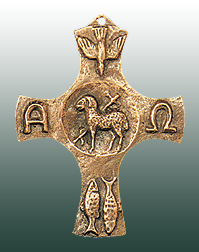by Daniel S. Trout
This second installment of “What does it mean to be a Christian Pacifist?” could also be titled “Hating the World but Loving the world.” This distinction is crucial because it is precisely the posture one must take if due regard is given to the ethics of the New Testament. While those that discern a radical counter-cultural ethos within the Gospels (particularly) are frequently dismissed as apolitical, world-denying, and so on, I would suggest that such accusations are premature–in great need of reconsideration.
The heart of NT ethics is the presupposition that Jesus Christ is the embodiment of the eschatological initiation of the kingdom. His words, his actions and general lifestyle model true reconciled living for those that are called to be his disciples. Jesus fulfills the Law and transforms in his own person the nature, dictums, and application of the Law, thus laying the foundation of virtuous conduct for a mature Israel–his holy Church. While much could be said about these mentioned points, the thrust I must highlight here is the overarching motif that the new community is not of the world, and for that reason will earn its hatred (Jn. 15:18ff). This hatred is motivated by (what should be) the luminously obvious (think light of the world) character of the Church–she is the sacramental image of Christ’s new creation–and therefore lives on a different plane of reality. Within her lives the fulfillment of the prophet’s expectations: forgiveness, peace, and a certain hope founded on better promises. To a watching world, the Church must look like madness. Here is a community that revolves around its members commitment to love, reconciliation and sacrifice that esteems service and renounces the offerings of Babylon: lust, greed and war in the service of power and control–political, financial and sexual.
The Church rejects the will of the Whore because, as Jesus has demonstrated for her, the will of the Father is infinitely more important and binding. And the directives of this holy will is that the Church, like Christ, show the world what it means to be the People of the Holy Trinity. This is precisely why the politics of the Church are inherently different from the world. The politics Jesus gave to her reflect the revelation of Trinity as a communion of persons distinguished by love, deference, self-giving and a unity of mind and will that yields eternal peace. For Christians, the Triune communion is the archetype of politics. Thus, as we become more immersed in the life of the Trinity through the work of the Holy Spirit–both personally and corporately–we begin to intuitively conduct ourselves as models of this new political order: the meek, the poor in spirit and the peacemakers. The life of Jesus, a life that abandons the temptations of desire, prestige and power, becomes our own as we imbibe his words, strengthened always by his Body and Blood.
Living according to this nature, therefore, it is simply unthinkable that the Church have anything to do with the politics of this world’s kingdom’s; doing so would be nothing less than attempting a mix of light and darkness–those of the Spirit and those not. The world’s politics accept everything that Satan offers, and though they be under God’s control, they are intrinsically evil and destined to pass away. As people of a new order, it is senseless to engage in politics foreign to the commands of Christ, to commit ourselves to preserving, yes even fighting for regimes pledged to policies and raison d’etres utterly strange to the new Triune life we have been given. As a result, Christian politics grounded in the Gospel record can only be pacifist because we never have a reason to do battle for so-called “just causes”, “honor” or whatever, in the name of any nation, under any banner. If we can only take one thing from the Calvary, it is that it is more glorifying to God to be crucified under their wrath than to stand with them for any corrupt ideology. The Cross is the banner of our politics–the symbol of death metamorphosed into life, victory and the defeat of all the powers that do politics according to Satan’s way of arrogance, rebellion and war-mongering.
It should now be obvious that, for the Church, living these politics doesn’t mean that she is apolitical; rather, she is the Queen of politics because her’s are restored in her reconciliation with the Holy Trinity, and with the baptized persons that comprise her. Thus, though she transcend the order of this world’s false kingdoms, she is compelled to live within them; that is why she is commanded to be salt and light. The Church is the decisive critic of all other politics because only she can show the nations the folly and violence of their ways and the verity and peace that is hers. But if she compromises, then the witness is tainted, the fruits of kingdom corrupted, the light shrouded. The tension of owning the kingdom of heaven means bathing in it and displaying its glory while surrounded by the muck of the old order, still scratching for an existence. The Church will only change the Devil’s politics, yes even destroy them, when she purely proclaims her own. This is cultural transformation in a counter-cultural strategy–through love in the midst of hate, through forgiveness in the face of revenge, through peace under the threat of violence. I pray we will all know no other way.
